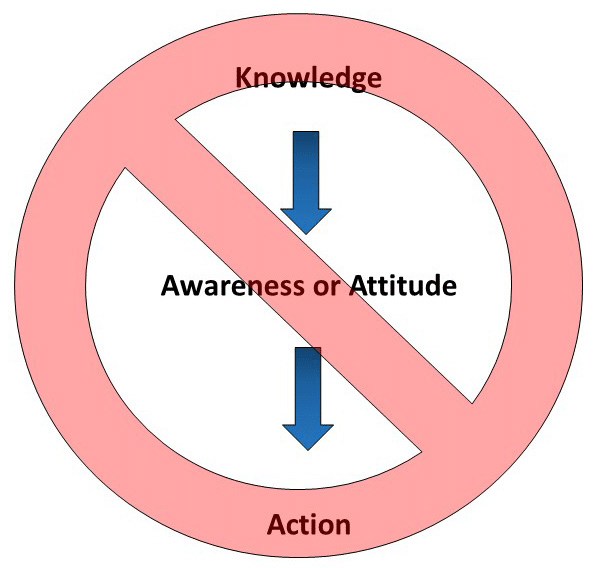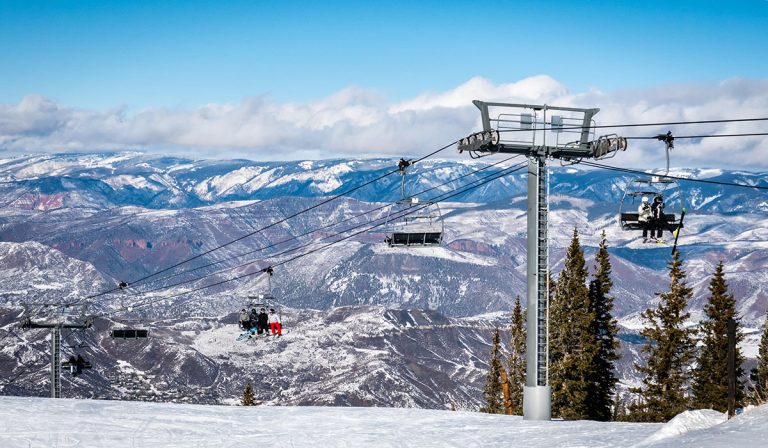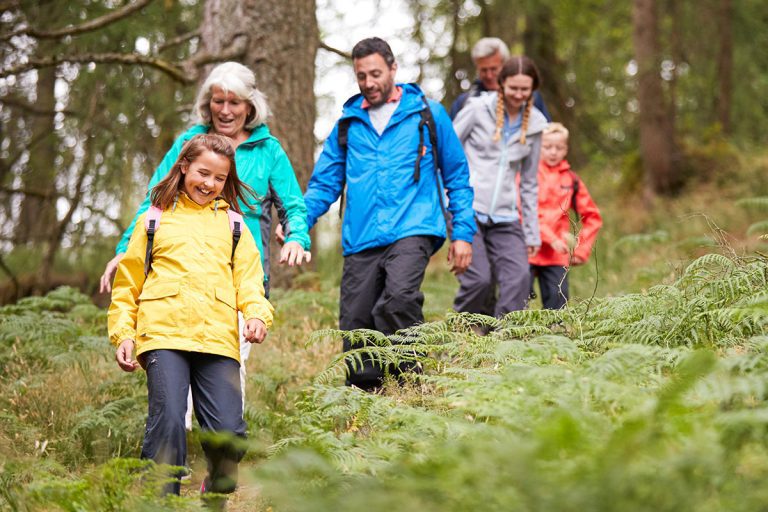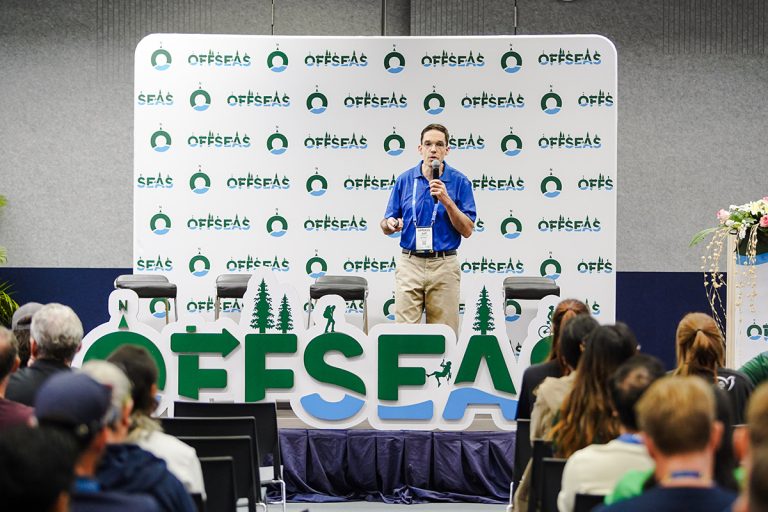Seminar Offers Guidance on Incorporating Environmental Education into Mountaineers Trips
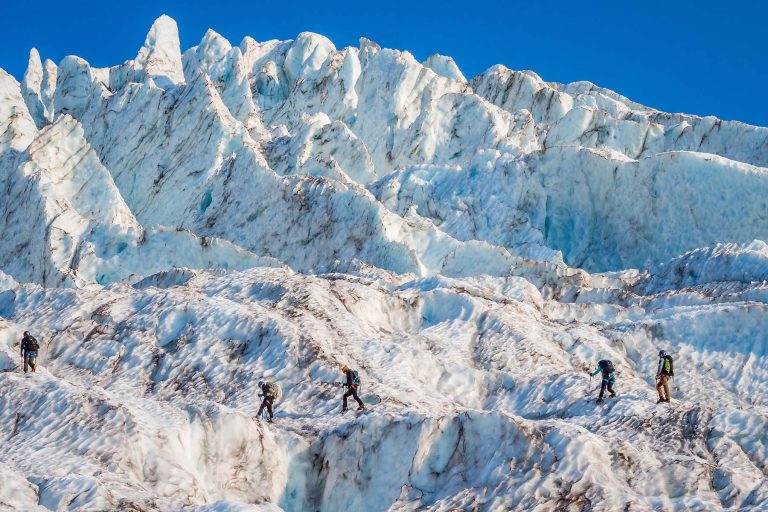
Viristar provided a workshop, “Incorporating Environmental Education Into Mountaineers Trips,” for volunteer trip leaders with The Mountaineers, an outdoor nonprofit based in Seattle, Washington USA, earlier this week.
The seminar, which was well-received by participants, was the second in a series of continuing education experiences offered by Viristar as part of The Mountaineers’ Leadership Development Series, a set of professional development opportunities offered to members of The Mountaineers’ community.
What Is Environmental Education?
The presentation began by sharing a definition of environmental education developed at the United Nations International Environmental Education Workshop in Belgrade, in current-day Serbia, in 1975, documented in the Belgrade Charter:
“The goal of environmental education is to develop a world population that is aware of, and concerned about, the environment and its associated problems, and which has the knowledge, skills, attitudes, motivations and commitment to work individually and collectively toward solutions of current problems and the prevention of new ones.”
The goals of environmental education were described, following the 1977 Tbilisi Declaration in what’s now Tbilisi Georgia:
- To foster clear awareness of, and concern about, economic, social, political and ecological interdependence in urban and rural areas;
- To provide every person with opportunities to acquire the knowledge, values, attitudes, commitment, and skills needed to protect and improve the environment;
- To create new patterns of behavior of individuals, groups, and society as a whole toward the environment.
Categories of environmental education objectives, as established in that declaration were described:
- Awareness
- Knowledge
- Attitudes
- Skills
- Participation
It was clear to members of The Mountaineers that environmental education is much more than teaching Leave No Trace principles or trailside natural history, but that it has a skill-building component and, importantly, an action orientation.
The workshop discussed a definition of environmental sustainability, based off of the 1987 Brundtland Commission’s report, Our Common Future, developed by a group led by the former Prime Minister of Norway Gro Harlem Brundtland.
Environmental sustainability can be seen as:
Meeting the needs of current generations without compromising the ability of future generations to meet their own needs.
What does this look like on a practical level? How do we operationalize this for outdoor programs:
The Swedish NGO The Natural Step provides details:
- In a sustainable society, nature is not subject to systematically increasing…
- Concentrations of substances from the earth’s crust (such as fossil CO2, heavy metals and minerals)
- Concentrations of substances produced by society (such as antibiotics and endocrine disruptors)
- Degradation by physical means (such as deforestation and draining of groundwater tables).
- And in that society there are no structural obstacles to people’s health, influence, competence, impartiality and meaning.
Environmental Education Curriculum Components: What the Evidence Shows
It’s easy to think that if we simply impart knowledge—for instance, ecological concepts, or perhaps information on environmental issues—this automatically leads to an attitude of caring about the natural environment, which is then followed by effective action to support environmental sustainability.
However, academic research in environmental education makes clear that this simply isn’t so.
The workshop illustrated seven components of a comprehensive environmental education program, which, when provided together, can lead to responsible environmental behavior that fosters environmental sustainability:
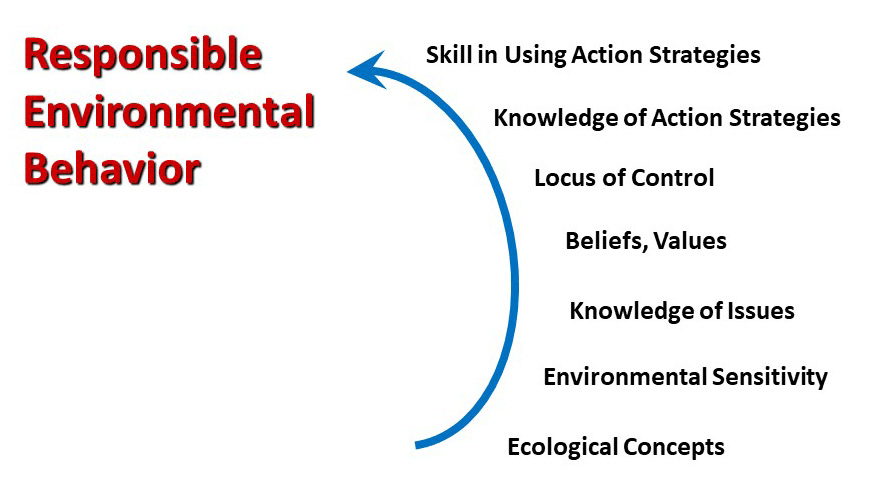
This progression was developed from meta-analytical research conducted by Jody Hines, and refined by Trudi Volk and Harold Hungerford, and published in the Journal of Environmental Education.
Guidelines for Excellence
The presentation introduced the Guidelines for Excellence, developed by the North American Association for Environmental Education. NAAEE’s four “thematic strands” of environmental education were summarized:
❶ Questioning, Analysis, and Interpretation Skills
❷ Understanding Environmental Processes and Systems
Earth’s physical and living systems
Human systems
Environment and society
❸ Skills for Understanding and Addressing Environmental Issues
Skills for analyzing and investigating environmental issues
Decision-making and action skills
❹ Personal and Civic Responsibility
Building Environmental Education Curriculum
The workshop presented a framework for developing a learning plan, or curriculum, by which environmental education can be incorporated into outdoor recreation trips provided by The Mountaineers (or any other organization).
Curriculum elements discussed include:
- Goals. These are the learning aims. Establish these before determining which activities will be conducted.
- Activity plans/lesson plans. These describe the activities to be held, which are to meet the pre-established learning goals.
- Assessment. These are the instruments designed to evaluate whether the activities/lessons were effective in helping the learning goals be achieved.
And educational methodologies that can be used in environmental education were also covered:
- Experiential education
- Adventure-Based Learning
- Inquiry-Based Learning
- Progression (constructivism, sequencing, cognitive process progression)
The concept of a syllabus, or a summary outline, often chronological in nature, was also discussed. A sample syllabus for a three-day “scramble” (an alpine climb not a technical mountaineering expedition) incorporating four brief environmental education components was illustrated:
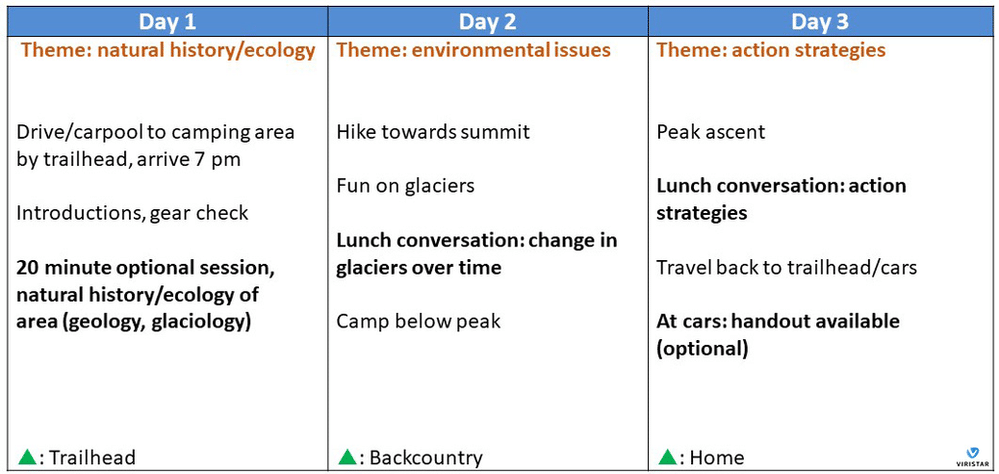
A summary of talking points for the first night’s optional discussion on glaciology was provided, providing a basis of natural history and ecological concepts that could be built upon.
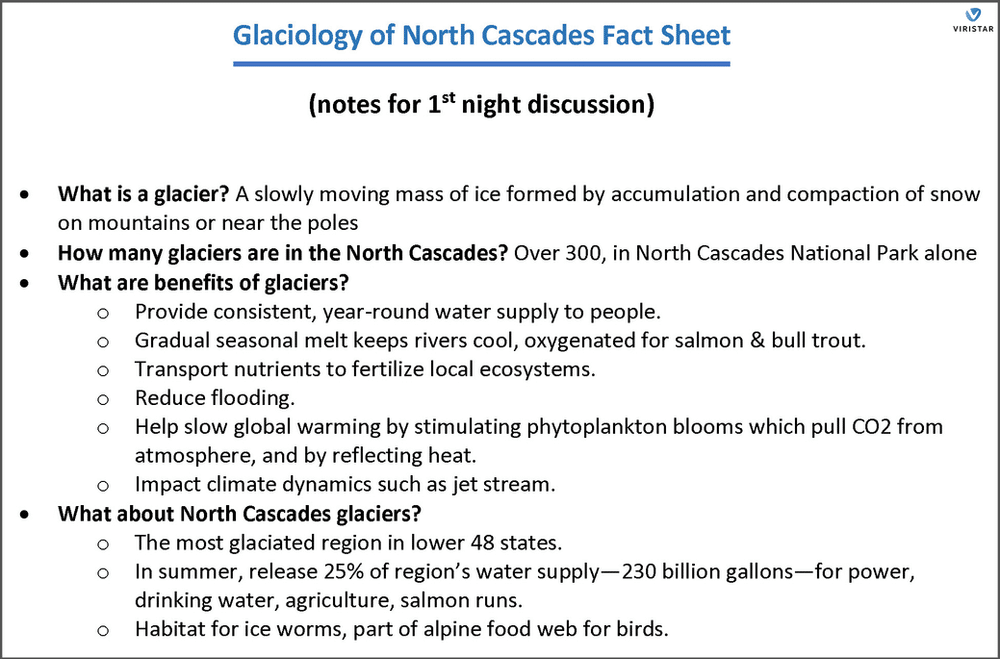
And a full lesson plan for the second environmental education component, a brief talk on the second day of the trip, was introduced.
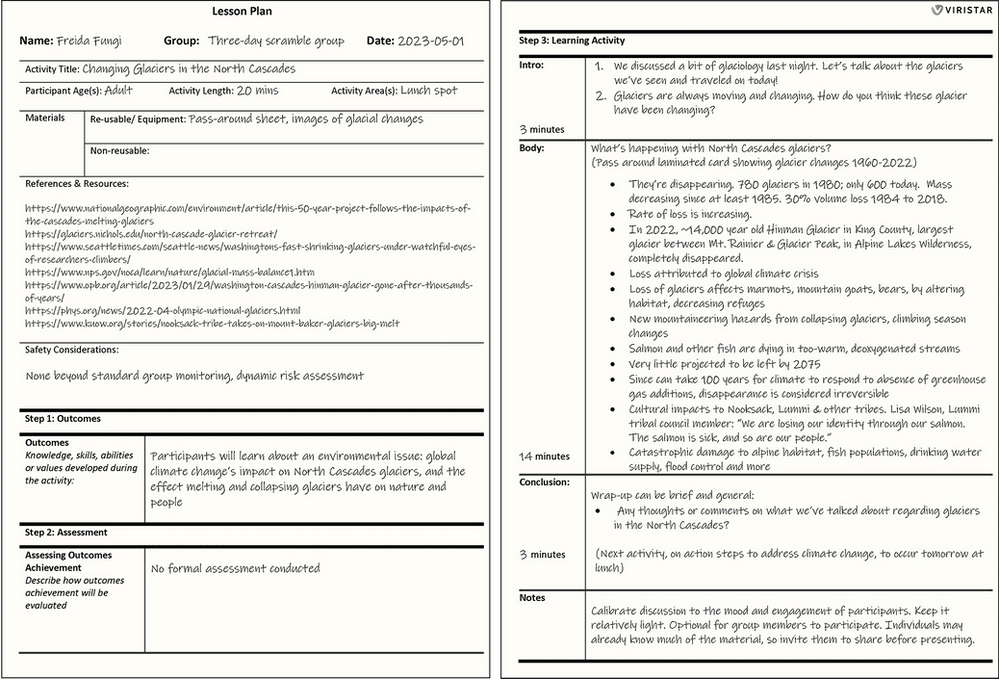
An example of a handout to be passed around to environmental education learners, referenced in the lesson plan was also shown.
And an example “action steps” handout that could be provided to participants on the Mountaineers scramble on the last day was also given.
Participants in the workshop discussed the relative merits of all these curricular resources. They then spent some time in breakout groups, coming up with an example Mountaineers trip, and developing an outline (syllabus) of how they might integrate environmental education components into the trip.
Next Steps
The Mountaineers, a community of 15,000 active members in the USA’s Pacific Northwest, aims to enrich the community by helping people explore, conserve, learn about, and enjoy the lands and waters of the Pacific Northwest and beyond. The nonprofit, founded in 1906, offers recreation, conservation, environmental advocacy, stewardship and other programs for its members, led by volunteer leaders. The Mountaineers offers an extensive suite of training and leadership development experiences for its leaders, of which the Viristar workshops were but a small part.
Viristar is proud to support The Mountaineer’s aim to connect people—especially those who have been historically excluded—with the transformative power of outdoor experiences. Viristar offers risk management training, outdoor safety consulting, education program development, business management services and wilderness medicine courses to outdoor and experiential professionals world-wide.
